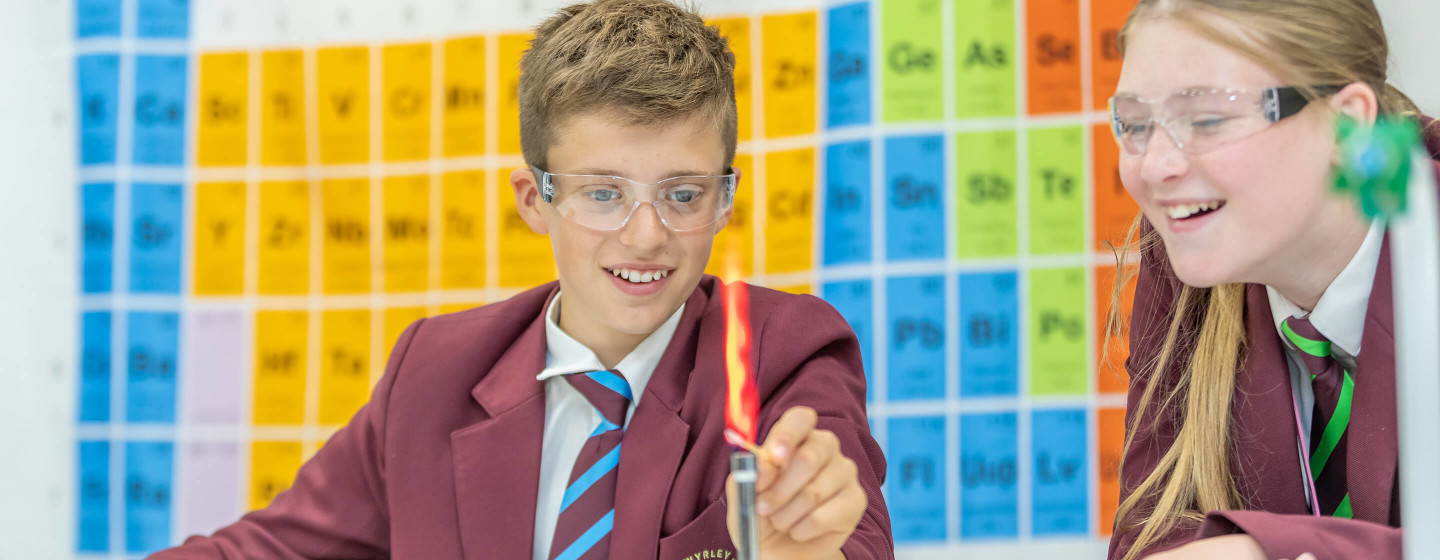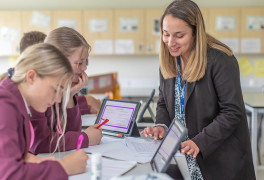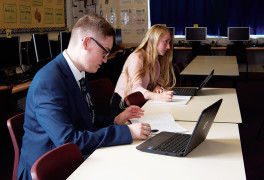
Curriculum
Our curriculum has been designed to provide all students – regardless of their background and ability- with access to a broad and balanced range of subject experiences and, ultimately, for them to achieve success in these areas. Our moral purpose and overall aim is to unlock the academic and personal potential of all our students. Our curriculum is designed to challenge, engage, enthuse and inspire students- every lesson of every day.
Our curriculum Intent has been informed by a wide variety of researchers and thought leaders and has been designed collaboratively by subject experts. Christine Counsell summarises the aspiration of our curriculum to empower all learners creating a pathway to success in university, their career and life:
A curriculum exists to change the pupil, to give the pupil new power. One acid test for a curriculum is whether it enables even lower attaining or disadvantaged pupils to clamber in to the discourse and practices of educated people, so that they gain powers of the powerful.
Subject intent can be found here.
Our Curriculum Implementation
Our curriculum is structured into Key Stages 3, 4 and 5. The learning journeys for all subject areas can be found below. The breakdown of each key stage can be seen below.
Our WAT teaching and learning cycle, through which our 10 teaching and learning principles are embedded, ensures that the curriculum is delivered effectively so that all students make progress.
360 Cycle
All students across all key stages should be able to maximise their learning by having the opportunity to revisit learning and correct their misunderstandings. The curriculum is therefore organised into three cycles of learning, each cycle lasting 12-13 weeks in total, within each cycle, there are three distinct phases.
Key Stage 3 (Years 7 to 9)
Threshold Curriculum
In Years 7, 8 and 9 at Great Wyrley Academy, students study the Windsor Academy Trust Threshold Curriculum.
The Threshold Curriculum builds upon the Key Stage 2 primary curriculum and places the most fundamental parts of each subject at the core of learning in lessons. Students study a variety of challenging and engaging topics that incorporate the key ideas and skills that they need to progress in each subject. These are called the Threshold Concepts. Our curriculum will provide the platform in preparing students with the foundations for future examination success.
Subjects taught in Key Stage 3
Maths, English, Science, MFL (French), Geography, History, RE, PE, Technology, Art, Music, Drama, PSHCE (Including Relationships and Sex Education).
Curriculum Guides
Knowledge Organisers
Students have access to knowledge organisers to help summarise all of the essential facts we expect them to know within their Threshold Curriculum.
This knowledge will support them to make sense of what they are being taught and be able to relay this knowledge to other contextual understanding and help to make their learning stick.
Year 9 Options
Towards the end of Year 9, as students are preparing for Key Stage 4, our options process helps students to specialise their studies according to their strengths, interests and ambitions, whilst continuing to study the key, mandatory ‘Core’ subjects.
A guide to completing the options form can be accessed here
Subject Videos
|
Option subject |
Recording |
|
Art, Craft and Design |
|
|
Child Development |
|
|
Dance |
GWA Year 9 Options - BTEC Dance |
|
Digital Information Technology |
|
|
Drama |
GWA Year 9 Options - Drama |
|
Enterprise (Business) |
|
|
Hospitality and Catering |
|
|
French |
|
|
Geography |
|
|
History |
|
|
Music |
|
|
3D Design |
|
|
Religious Studies |
|
|
Textiles |
|
|
BTEC Sport |
Key Stage 4 (Years 10 to 11)
In Year 10 students move into Key Stage 4 where they undertake the study of full GCSE courses or vocational qualifications.
Some core subjects are mandatory and some are chosen through the options process. All students will study English, Maths, Science, Core Physical Education and Personal, Social, Health and Citizenship Education (including RSE). In addition, students will also pick four
options subjects to study alongside this.
GCSEs and vocational qualifications (BTECs and Cambridge Nationals) are studied across the two years of Key Stage 4.
Subjects studied at KS4
- English
- Maths
- Science
- Art, Craft and Design
- Child Development
- BTEC Dance
- BTEC Digital Information Technology
- Drama
- BTEC (Business) Enterprise
- Food Preparation and Nutrition
- French
- Geography
- Graphics
- History
- Music
- Product Design
- Religious Education
- Sport Studies
Key Stage 5 (Sixth Form)
In Years 12 and 13 we are able to offer an extensive range of advanced level academic and applied courses. The present range of A Level courses on offer includes:
Art and design, Biology, Business studies, Chemistry, Drama, Economics, English literature, Geography, Government and politics, Health and social care, History, Information technology, Mathematics, Media studies, Music, Philosophy and ethics, Physical education,
Physics, Psychology, Sociology.
We partner with Cheslyn Hay Academy to enable our students to access a broad range of other courses delivered elsewhere whilst remaining a member of our sixth form. As with Key Stage 4 options, the running of courses depends on viable numbers. Further information about our 16+ provision can be found on our sixth form website.




